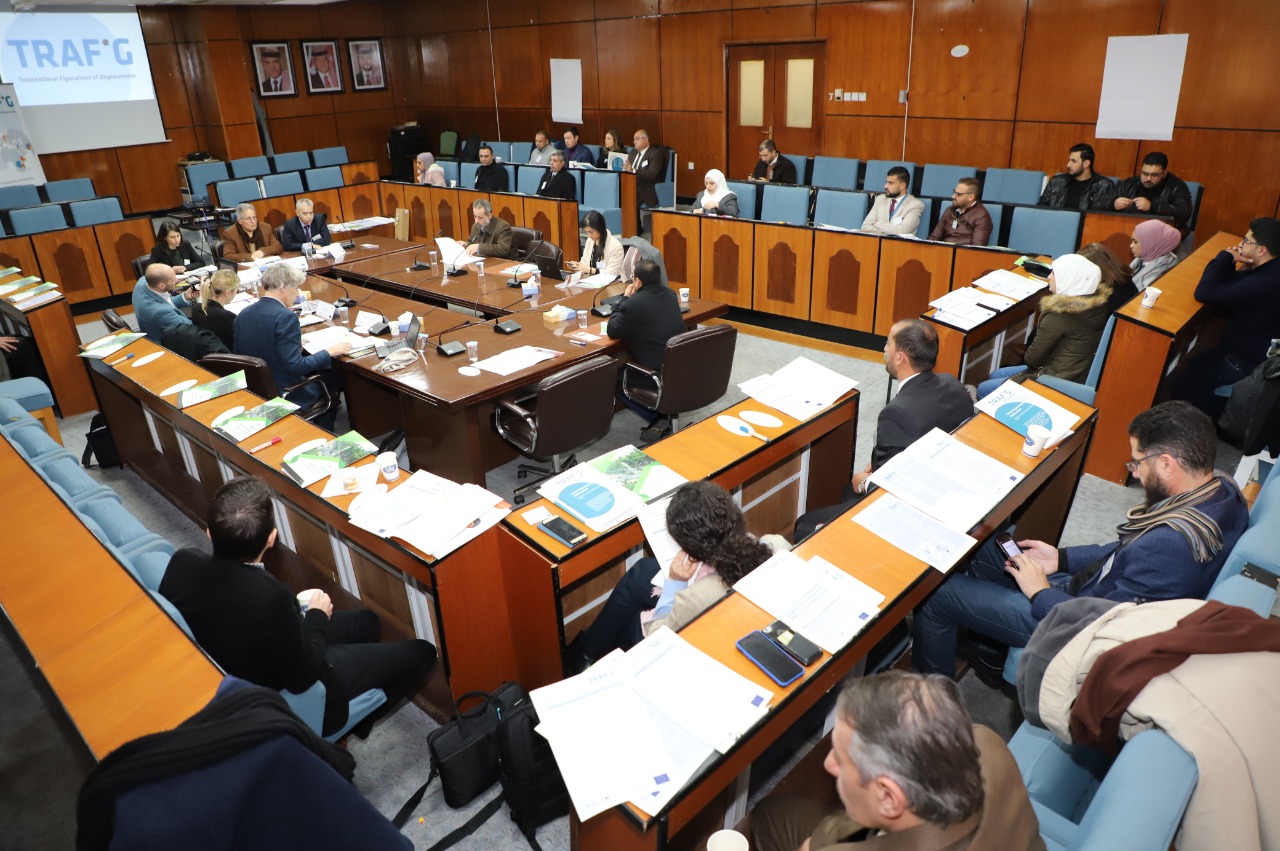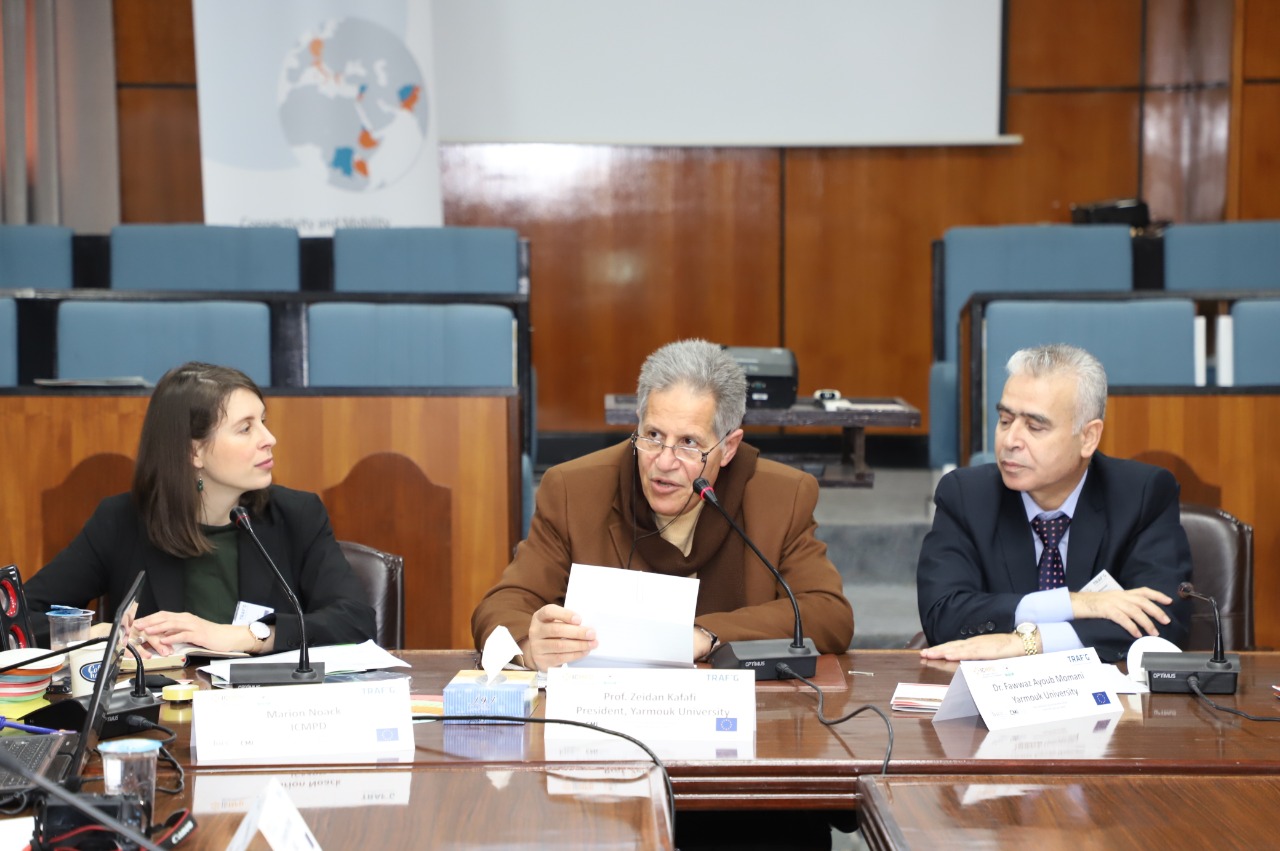TRAFIG Stakeholder Workshop in Irbid/Jordan
On 9th of February 2020, the first interactive TRAFIG stakeholder workshop took place in Irbid, Jordan. It kicked off a series of events in the TRAFIG focus countries. This first workshop aimed at discussing viable policy options and good practices and thereby supporting the identification of possible solutions to protracted displacement. Organised by Yarmouk University in cooperation with BICC, CMI and ICMPD, it further built on the preliminary research results of the TRAFIG project. The workshop participants were invited to contribute to the analysis of these results.
At the opening of the workshop, the vice-president for administrative affairs of Yarmouk University, Prof. Anis Khasawneh, addressed in his welcome remarks the significance of the Syrian crisis for Jordan as a major host country. The university’s aim is to promote excellence in this field of research. After a presentation of the objectives of TRAFIG by Benjamin Etzold, BICC, Fawwaz Momani, Yarmouk University, introduced the Jordanian research team and presented the research methods applied in the Jordanian context, consisting of qualitative interviews, quantitative data collection, ethnographic methods as well as group consultations. Sarah Tobin, CMI, presented the preliminary research findings in four of the TRAFIG themes, namely “Navigating through Governance Regimes”, “Living in Limbo”, “Following the Networks” and “Building Alliances”. The results drawn were based on more than 100 interviews with Syrian refugees in Irbid, hosting about 30% of the country’s urban refugees undertaken: Mafraq, which was one of the earliest sites for Syrian refugees to congregate in Jordan; and Zaatari, one of the largest refugee camps in the world.

 Opening of the workshop by Prof. Anis Khasawneh
Opening of the workshop by Prof. Anis Khasawneh
Sarah Tobin highlighted that humanitarian assistance is gradually decreasing, leading to food insecurity and a lack of access to medical care. The research also shows that work permits, despite the “Jordan compact” and enhanced efforts of the government and the international community, are difficult to access and not tailored to the needs of women. Women also have distinct security-related concerns for themselves and are worried because of threats that their male children would be conscripted in Syria. Networks play a crucial role, on the one hand for facilitating a safe passage to the Jordanian border, on the other hand are they directing settlement choices. Social ties and interaction with host communities, however, are weakened by security issues in the host and sending country as well as by a lack of integration in the labour market in particular.
In the subsequent discussions and the working group sessions, participants raised important issues that will be integrated in the next research phase. It was highlighted that in order to expand opportunities for Syrian refugees, the shared responsibility needs to lead to intensified efforts in the education and labour market sector. Funding should be further aligned with national priorities and a long- term political vision be developed. Furthermore, livelihood support needs to be guided by development principles and understood in a broader sense, including providing more options for mobility in the wider region and beyond.
The workshop brought together humanitarian and development actors working with displaced persons, international organisations, representatives from Jordanian national authorities and academia. It was moderated by Marion Noack, ICMPD.
Download the agenda and background information on the workshop here.
Download the summary of preliminary research results here.